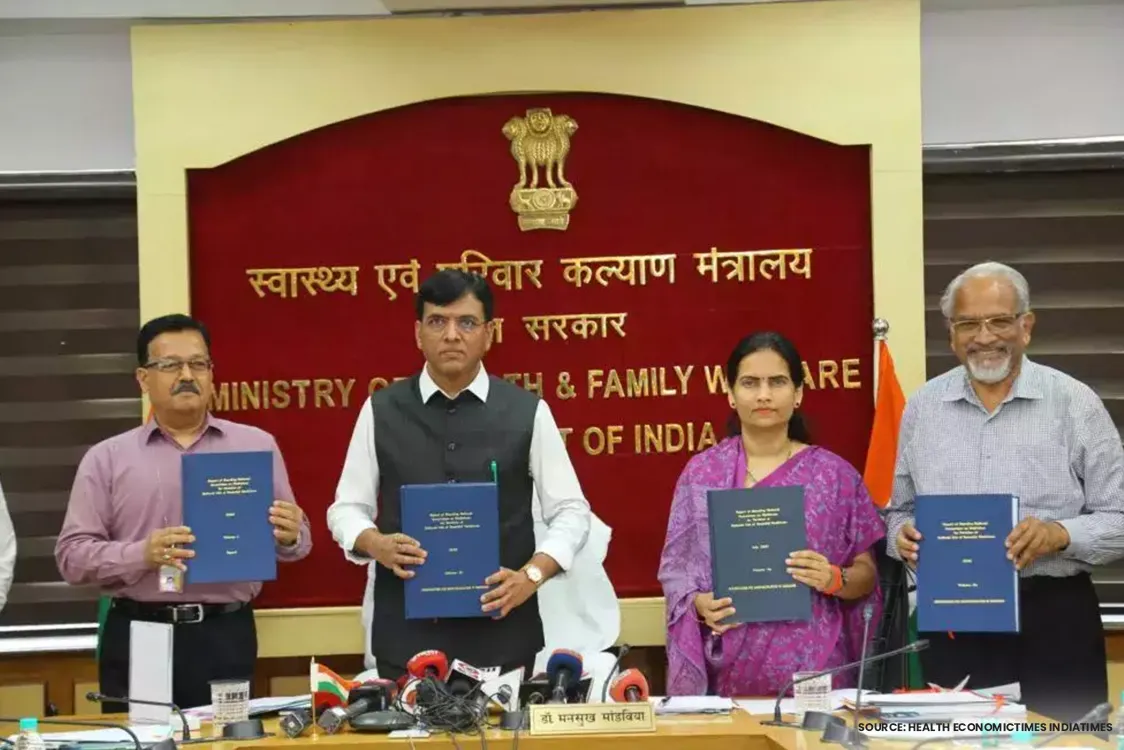The National List of Essential Medicines (NLEM) is a list of medications that meet the highest priority healthcare needs based on efficacy, safety, quality, and overall cost of care. The list’s goal is to guarantee the public’s access to safe, high-quality, affordable, and readily available medicines.
Dr. Mansukh Mandaviya, Union Minister of Health and Family Welfare, has released the National List of Essential Medicines 2022, including 384 drugs in 27 categories. After removing the list, he tweeted, “Several antibiotics, vaccines, anti-cancer drugs, and many other important drugs will become more affordable and reduce patients’ out-of-pocket expenditure.”
Based on efficacy, safety, quality, and overall treatment cost, the National List of Essential Medicines (NLEM) are the medications that best meet patients’ top healthcare needs. The list’s goal is to guarantee the public’s access to safe, high-quality, reasonably priced medicines. The primary, secondary, and tertiary healthcare levels are used to categorize the essential medications listed in India.
One important NLEM inclusion criterion is based on:
- The medication must be effective for treating illnesses that are a public health concern in India.
- The Drugs Controller General of India must grant the medication a license or approval (DCGI)
- It must have an established safety and efficacy profile supported by scientific data.
- It should adhere to the most recent treatment recommendations and be reasonably affordable.
- The medication must be suggested under India’s National Health Programs.
- One prototype or the medically best-suited medicine from that therapeutic class should be included when more than one medication is available.
- The cost of the entire course of treatment, not just a single medication, must be considered.
- Typically, the fixed-dose combinations are excluded.
- When it comes to vaccines, it depends on when they are added to the Universal
Immunization Program.
The following is the basis for the NLEM deletion criteria:
- If India has outlawed the medication
- If there are reports of safety profile concerns
- If a medication is now available with improved efficacy, a favorable safety profile, and improved cost-effectiveness
- The prevalence of the disease for which treatment is recommended no longer
threatens national health. - If a resistance pattern has rendered an antimicrobial ineffective in the case
of antibiotics





